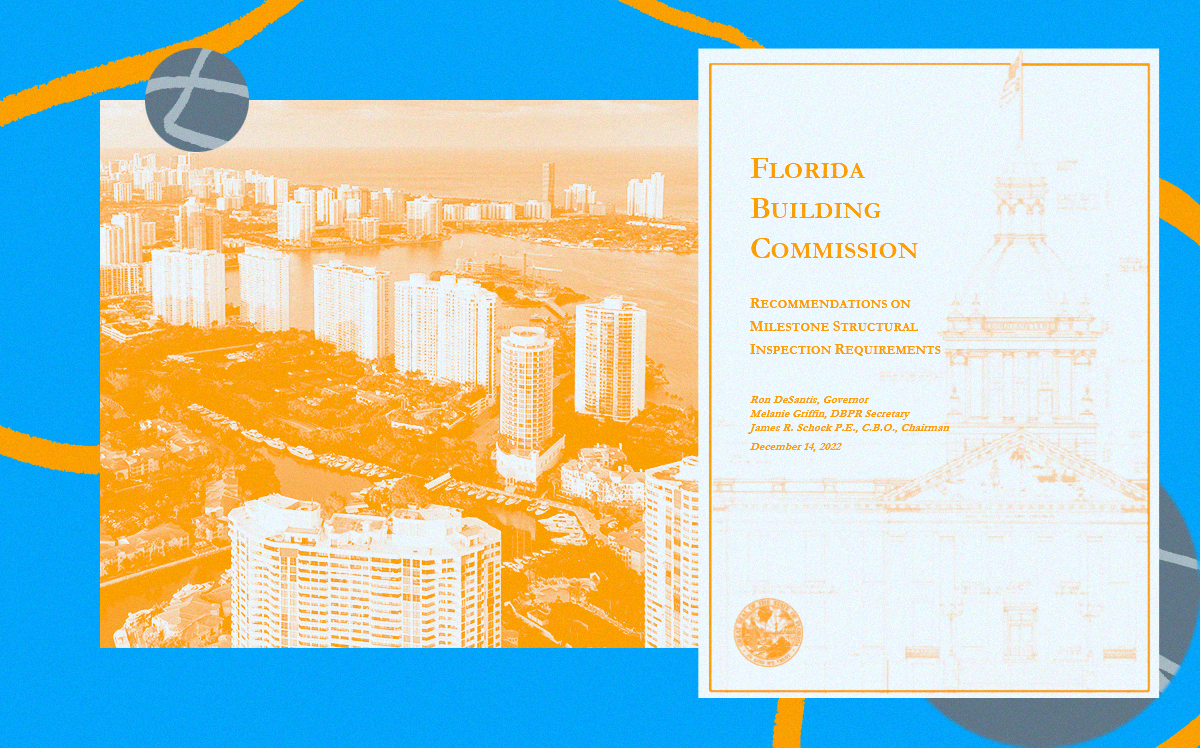Florida lawmakers made changes to a bill that aims to clarify aspects of the condo safety law passed last year, after it resulted in condo association boards scrambling to meet looming deadlines for financial and structural repairs.
State senators voted unanimously to approve Senate Bill 154 on Wednesday. It’s now in the Florida House, and if it passes as expected, would then go to Gov. Ron DeSantis’ desk for his signature to sign into law.
The bill provides some flexibility to the condo safety law. It gives local municipalities some authority in enforcement, and limits the “milestone” inspection requirements for residential condominium or cooperative buildings.

“The change came very quickly, and the financial implications for a lot of unit owners, especially on fixed incomes, is massive,” said attorney Darci Cohen, a partner at Miami-based Mark Migdal & Hayden, referring to the law passed last year.
The condo safety law eliminated condo and homeowners’ associations’ ability to waive the funding of their reserves, giving them until the end of 2024 to raise their monthly dues or enact special assessments to fully fund reserves, if needed, by the start of 2025. It requires buildings to have an architect or engineer complete structural integrity reserve studies, which then determine how much a building has to have in its reserves.
It also requires buildings of three stories or taller to go through inspections once they are 30 years old, or 25 years old if within three miles of the coastline, and every 10 years after that.
The May 2022 law was a response to the deadly condo collapse in Surfside in June 202. Ninety-eight people died when the Champlain Towers South building came crashing down overnight. The oceanfront building, constructed in the early 1980s, was about 40 years old and in need of major repairs.
Rather than a blanket requirement, the new proposed legislation gives local agencies the power to determine if condo and co-op buildings within three miles of the coastline need to be inspected at 25 years. Otherwise, they will face a 30-year deadline.
All condo and co-op buildings that are 30 years or older will have until the end of 2024 to complete their inspections.
The local enforcement agency, likely the municipality where a property is located, would also have the authority to extend the inspection deadline for buildings. That is if the association shows good cause that it has engaged an architect or engineer to perform the milestone inspection, and that the inspection can’t reasonably be completed before the deadline.
Local agencies would also be able to accept inspections or reports completed before July 1 of last year if the inspections or reports substantially comply with the requirements.
“You’re going to see different levels of enforcement on this,” said Cohen, adding that it gives associations and owners “a little bit more breathing space.”
Condo/co-op associations will be required to notify owners of a required milestone inspection within two weeks of receiving a written notice from their municipality.
Another significant change SB 154 proposes is allowing condo boards to waive full or partial funding of financial reserve requirements, only if they secure a majority vote of the entire building’s voting interests, and only until the end of 2024. Prior, boards could vote to do so based on attendance at a condo association meeting, which is often very low. The condo law passed last year eliminated the board’s ability to waive anything but fully funding their financial reserves.
That could provide temporary financial relief for many communities that are strapped for cash, Cohen said. A number of properties statewide are playing catch up, trying to make repairs, fund their reserves and keep up with the rising cost of insurance. Inflation and high construction costs have contributed to their financial headaches.
For budgets that associations pass beginning in 2025, the boards could also vote to provide no reserves or partial reserves for certain items — like a roof — if the association has alternative funding in place for that item, such as a loan.
If condo owners are covered by the state-backed Citizens Property Insurance, they would not be required to get flood insurance.
The bill would also make it harder to prove that board members or officers breached their fiduciary duties. It would clarify that the board members had to have “willfully and knowingly” failed to complete a structural integrity reserve study for it to be a breach of their duties. Disputes over inspections, reserves or repairs would also be subject to mediation prior to filing lawsuits, effective July 1, 2027.
Read more



